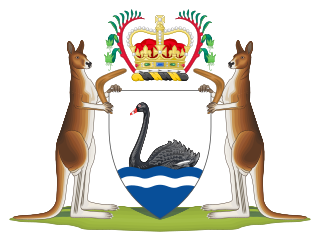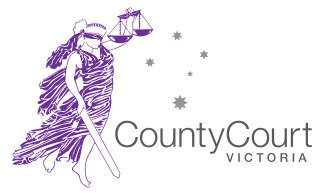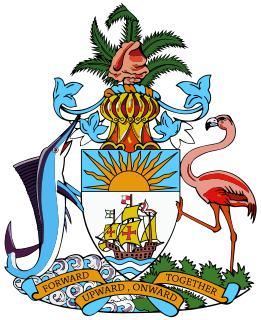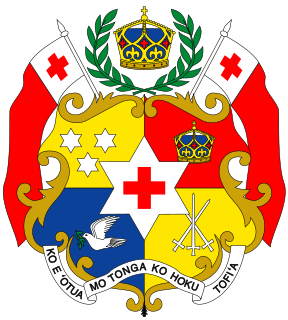Related Research Articles
The courts of England and Wales, supported administratively by Her Majesty's Courts and Tribunals Service, are the civil and criminal courts responsible for the administration of justice in England and Wales.

The term magistrate is used in a variety of systems of governments and laws to refer to a civilian officer who administers the law. In ancient Rome, a magistratus was one of the highest ranking government officers, and possessed both judicial and executive powers. In other parts of the world, such as China, a magistrate was responsible for administration over a particular geographic area. Today, in some jurisdictions, a magistrate is a judicial officer who hears cases in a lower court, and typically deals with more minor or preliminary matters. In other jurisdictions, magistrates are typically trained volunteers appointed to deal with criminal and civil matters in their local areas.

Judiciary of Malaysia is largely centralised despite Malaysia's federal constitution, heavily influenced by the English common law, as well as Islamic jurisprudence.

The Judiciary of the Hong Kong Special Administrative Region is the judicial branch of the Hong Kong Special Administrative Region. Under the Basic Law of Hong Kong, it exercises the judicial power of the Region and is independent of the executive and legislative branches of the Government. The courts in Hong Kong hear and adjudicate all prosecutions and civil disputes, including all public and private law matters.

The courts of Scotland are responsible for administration of justice in Scotland, under statutory, common law and equitable provisions within Scots law. The courts are presided over by the judiciary of Scotland, who are the various judicial office holders responsible for issuing judgments, ensuring fair trials, and deciding on sentencing. The Court of Session is the supreme civil court of Scotland, subject to appeals to the Supreme Court of the United Kingdom, and the High Court of Justiciary is the supreme criminal court, which is only subject to the authority of the Supreme Court of the United Kingdom on devolution issues and human rights compatibility issues.

The Supreme Court of South Australia is the superior court of the Australian state of South Australia. The Supreme Court is the highest South Australian court in the Australian court hierarchy. It has unlimited jurisdiction within the state in civil matters, and hears the most serious criminal matters. The Court is composed of a Chief Justice and as many other judges as may be required.

The Supreme Court of the Australian Capital Territory is the highest court of the Australian Capital Territory. It has unlimited jurisdiction within the territory in civil matters and hears the most serious criminal matters.

The District Court of Western Australia is the intermediate court in Western Australia. The District Court commenced in 1970, amid additional stress placed on the existing Magistrates Court and Supreme Court due to the increasing population of Western Australia. At its inception, the Court consisted of four judges: Sydney Howard Good, William Page Pidgeon, Desmond Charles Heenan and Robert Edmond Jones.

In England and Wales, a magistrates' court is a lower court which hears matters relating to summary offences and some triable either-way matters. Some civil law issues are also decided here, notably family proceedings. In 2015, there were roughly 330 magistrates' courts in England and Wales, though the government was considering closing up to 57 of these. The jurisdiction of magistrates' courts and rules governing them are set out in the Magistrates' Courts Act 1980.

The judiciary of Gibraltar is a branch of the Government of Gibraltar that interprets and applies the law of Gibraltar, to ensure equal justice under law, and to provide a mechanism for dispute resolution. The legal system of Gibraltar is based on English law and is a mix of common law and statute. The hierarchical system of courts includes a magistrates' court, a supreme court and a non-resident appellate court.

The County Court of Victoria is the intermediate court in the Australian state of Victoria. It is equivalent to district courts in the other states.

The High Court of Singapore is the lower division of the Supreme Court of Singapore, the upper division being the Court of Appeal. It consists of the chief justice and the judges of the High Court. Judicial Commissioners are often appointed to assist with the Court's caseload. There are two specialist commercial courts, the Admiralty Court and the Intellectual Property Court, and a number of judges are designated to hear arbitration-related matters. In 2015, the Singapore International Commercial Court was established as part of the Supreme Court of Singapore, and is a division of the High Court. The seat of the High Court is the Supreme Court Building.

The judiciary of Pakistan is a hierarchical system with two classes of courts: the superior judiciary and the subordinate judiciary. The superior judiciary is composed of the Supreme Court of Pakistan, the Federal Shariat Court and five High Courts, with the Supreme Court at the apex. There is a High Court for each of the four provinces as well as a High Court for the Islamabad Capital Territory. The Constitution of Pakistan entrusts the superior judiciary with the obligation to preserve, protect and defend the constitution. Neither the Supreme Court nor a High Court may exercise jurisdiction in relation to Tribal Areas, except otherwise provided for. The disputed regions of Azad Kashmir and Gilgit–Baltistan have separate court systems.

The Magistrates Court of Queensland is the lowest court in the court hierarchy of Queensland, Australia. All criminal proceedings in Queensland begin in the Magistrates Court, with minor offences being dealt with summarily, and more serious ones being referred to a higher court on the strength of evidence. Most criminal cases are first heard in the Magistrates Court, as are most civil cases. The Magistrates Court hears approximately 95% of all court cases in Queensland.

The courts of South Africa are the civil and criminal courts responsible for the administration of justice in South Africa. They apply the law of South Africa and are established under the Constitution of South Africa or under Acts of the Parliament of South Africa.

The basis of the Bahamian Law and legal system lies within the English Common Law tradition. Justices of the Supreme Court, Registrars and Magistrates are all appointed by The Governor-General acting on the advice of the Judicial and Legal Service Commission, which is composed of five individuals who are headed by the Chief Justice as their chairman. The Chief Justice and the Justices of the Court of Appeal, including the President, are appointed by the Governor-General on the recommendation of the Prime Minister after consultation with the Leader of the Opposition. Once appointed, the salaries and other terms of appointment of the Chief Justice, Justices of Appeal and Justices of the Supreme Court cannot be altered to their disadvantage. Justices of the Supreme Court can serve until the age of 65 years and, where agreed among the judge, the Prime Minister and the Leader of the Opposition, may serve until the age of 67. Justices of Appeal can serve until the age of 68 years and, where agreed among the judge, the Prime Minister and the Leader of the Opposition, may serve until the age of 70 years. The law of The Bahamas makes provisions for the appointment of 12 Justices to the Bench of the Supreme Court, inclusive of the Chief Justice, and for five Justices of the Court of Appeal, inclusive of the President. The Chief Justice, as Head of the Judiciary, is an ex officio member of the Court of Appeal, but only sits at the invitation of the President.

The Court of Appeal of Tonga is the supreme court in Tonga for all criminal and most civil matters. It hears criminal and civil appeals from the Supreme Court and also hears appeals from the Land Court.

The Judiciary of Sierra Leone is the branch of the Government of the Republic of Sierra Leone which interprets and applies the laws of Sierra Leone to ensure impartial justice under law and to provide a mechanism for dispute resolution. The independence of the judiciary is guaranteed by the constitution.
Petunia Tupou is a Tongan lawyer and jurist. Since 2022 she has been a judge of the Supreme Court of Tonga.
‘Elisapeti Lavakei’aho Makoni Langi is a Tongan lawyer and judge. She was the first woman appointed as a magistrate in Tonga, and the first to serve on the Supreme Court of Tonga.
References
- ↑ "Tonga's Justice Minister welcomes historic court appointment". RNZ. 28 June 2018. Retrieved 20 June 2020.
- ↑ "'Elisapeti Langi appointed Acting Supreme Court Judge".
{{cite web}}: CS1 maint: url-status (link) - 1 2 "Petunia Tupou appointed new Supreme Court judge". Matangi Tonga. 27 July 2022. Archived from the original on 28 July 2022. Retrieved 28 July 2022.
- ↑ "Judge appointed to Tonga Supreme Court". Loop Tonga. 8 February 2021. Retrieved 28 July 2022.
- Jennifer Corrin-Care, Tess Newton and Don Paterson Introduction to South Pacific Law (Cavendish Publishing Ltd: London, 1999).